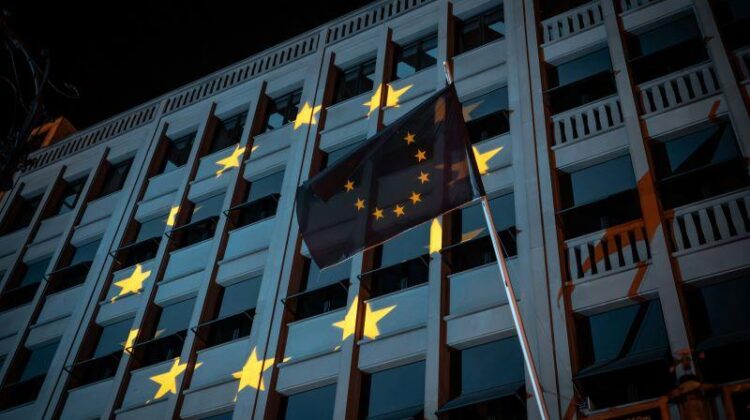
The European Union is working on new rules to keep elections safe from the tricks that some brilliant computer programs can do.
They’re asking people what they think about these rules, which are meant for prominent online places like Facebook, Google, TikTok, and Twitter.
- The European Union is talking to the public about new ideas to keep elections safe on big websites like Facebook, Google, TikTok, and Twitter.
- These new rules say that computer-made things should have unique labels and invisible marks so we know they’re computer-made. Also, big websites must work hard to stop fake news from spreading during elections.
- This is part of a big law called the Digital Services Act. The EU wants to have these rules ready before people vote for the European Parliament in June.
EU Initiates Public Consultation on Election Security Best Practices for Big Tech
Critical Aspects of the EU’s Proposed Guidelines:
- Comprehensive Measures: The guidelines aim to compel tech giants to effectively address a broad spectrum of election-related threats.
- Scope of Draft Recommendations: Targets nearly two dozen prominent platforms and search engines under the Digital Services Act (DSA).
- Content Creation and Spread: Focus on preventing the creation of misleading AI-generated content and managing its dissemination.
- Labeling: Recommendations for clear, persistent labeling of AI-generated and deepfake content, including user-accessible labeling tools.
- Watermarking: Suggested use of watermarking to easily distinguish AI-generated content, with moderation systems adapted for detection.
- Mitigation Measures: Calls for “reasonable, proportionate, and effective” strategies tailored to the creation and potential large-scale dissemination risks of AI-generated fakes.
Background and Concerns:
The EU is making these rules because people are worried that fancy computer programs can create fake stories and pictures.
Detailed Recommendations:
Consistent Labeling: Platforms are advised to ensure that labels on generative AI and deepfake content remain with the content when shared.
User Empowerment: Users should have tools to label AI-generated content.
Content Provenance: Watermarking and other indicators are recommended to flag AI-generated content, requiring platforms to be equipped for their detection.
Reliable Sources: AI-generated information should rely on dependable sources with accurate representation in electoral contexts.
Research Support: Platforms are encouraged to facilitate research on AI-generated content to understand and mitigate electoral risks.
Ad Transparency: Clear labeling on ads using generative AI to inform viewers of its use.
Consultation and Compliance:
The EU public consultation will conclude on March 7, with the final guidelines expected in the subsequent months.
The Digital Services Act (DSA) tells big websites they have extra jobs to do to ensure nothing online ruins our voting process.
If they don’t do what they’re supposed to, they could have to pay a lot of money, like up to 6% of what they earn worldwide in a year.
EU’s Intention and Upcoming Elections:
The rules are like a guide for good behavior on the internet, and the EU wants websites to follow them so that voting stays honest.
This is super important because there’s a big vote coming up in June for the European Parliament.
Thierry Breton, a big boss in the EU, said that the Digital Services Act is there to ensure online dangers don’t mess with elections and that people can still say what they want.
The EU is stepping up to protect voting from the tricky stuff new technology can do.

Leave a Reply